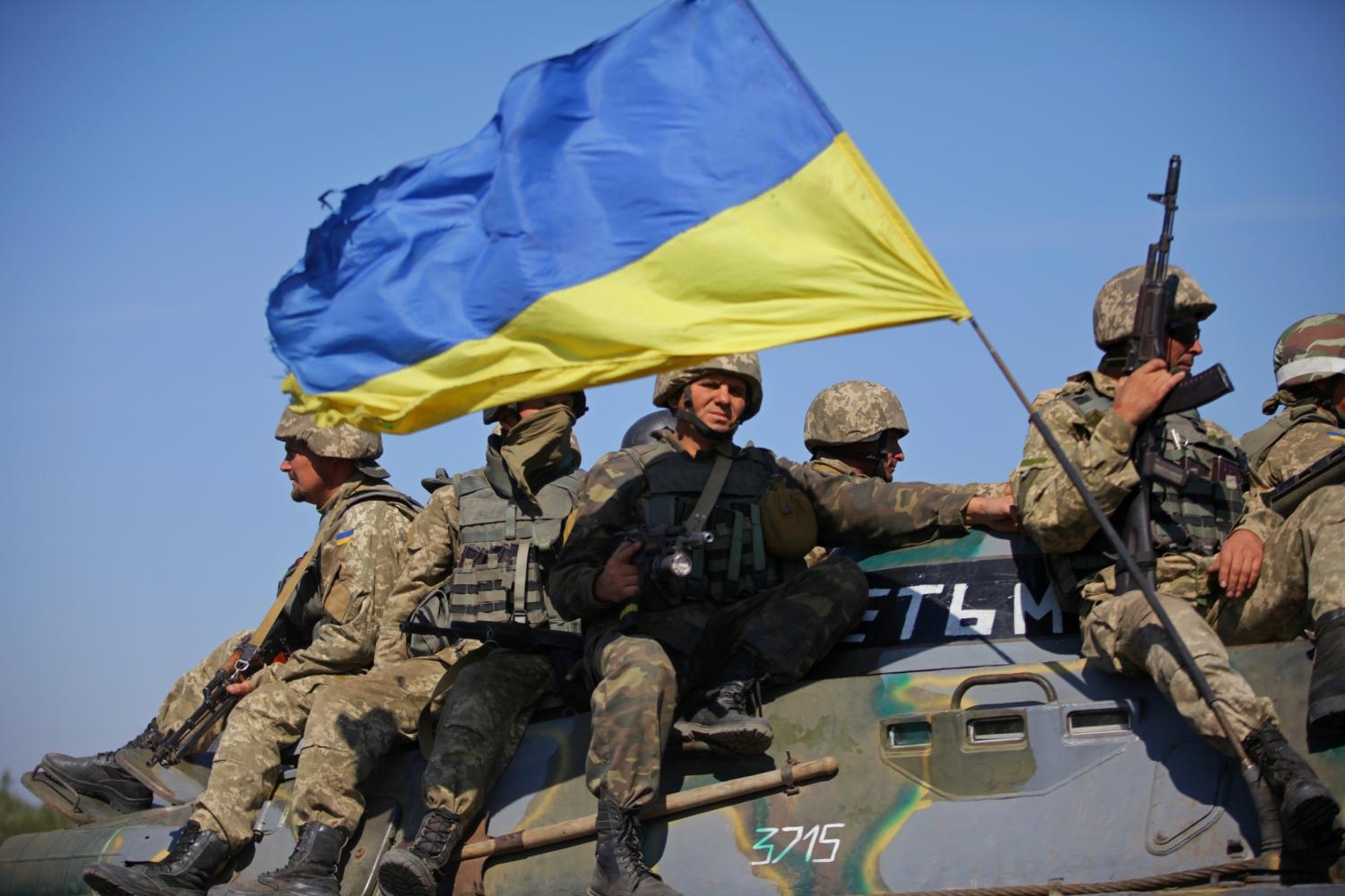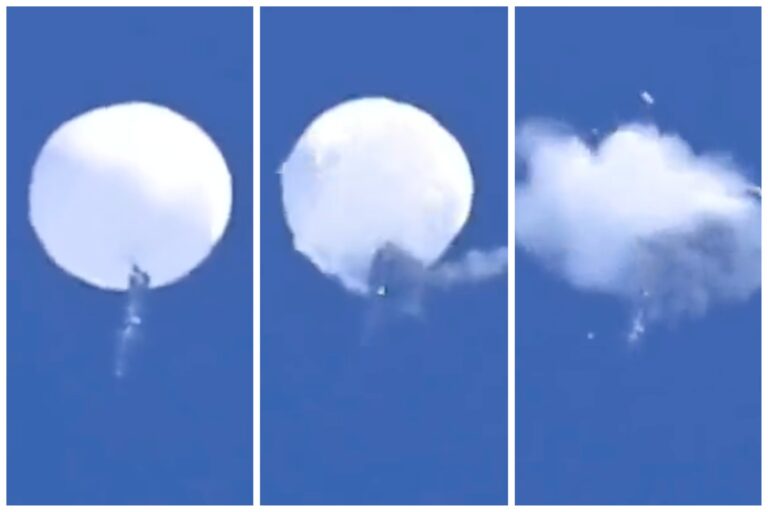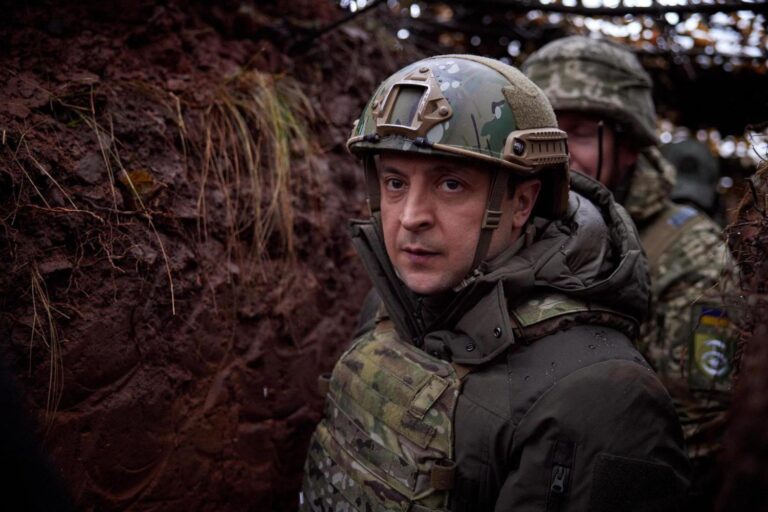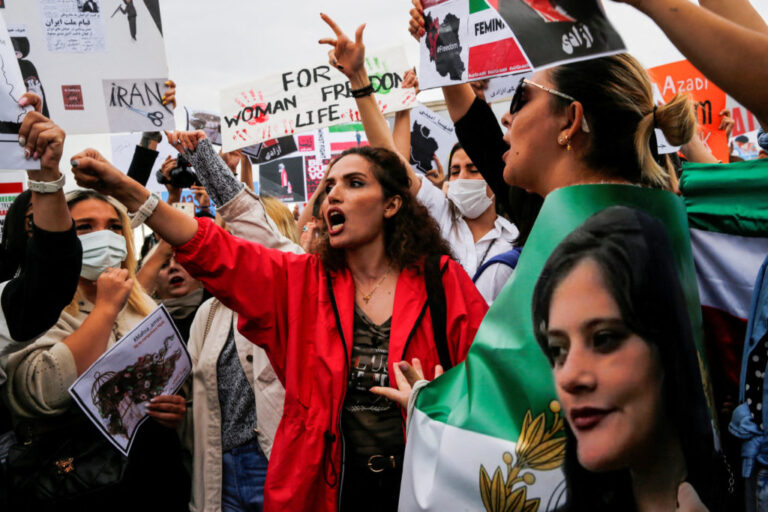The Ukraine crisis isn’t complicated—unless you’re imperialist
This article was first published in The Berkeley Beacon.
For weeks, college students have felt the distant-but-steady drumbeat of war, on the brink of what could be the bloodiest conflict since the 1940s. Yet, on our campus, the crisis has elicited little sense of alarm—and worryingly few voices of condemnation.
On the one hand, it might be unreasonable to expect art students to pay close attention to international affairs. Not everyone can be well versed in the long history of eastern European geopolitics, nor should everyone pretend to be. But you don’t need a Ph.D. to see Russia’s invasion of Ukraine for what it is.
I’ve heard Emerson students, like any good college students, question whether we can believe what we’re told. It can’t be the whole story, can it? What if the narrative of Russian aggression is just sensationalism—or worse, a fiction intentionally shaped by the media? What if Russia has a point—aren’t they threatened by Western encroachment into Eastern Europe? And the elephant in the room—isn’t it hypocritical to criticize Russia, when the United States has done so many things on its own?
For all the shades of gray in geopolitics—and they exist in spades—the crisis in Ukraine is relatively black-and-white. Simply put, we are witnessing shameless bullying on the world stage, a transparent bid of a once-great power to restore its pretensions of glory. And it is disingenuous, at best, to suggest it is anything else.
The idea that Moscow is, in any way, conducting genuine “peacekeeping” by moving thousands of troops into Ukraine’s breakaway regions is laughable. The so-called Donbas republics are already Russian puppet states in all but name, propped up by a not-so-secret contingent of Russian special forces rather than having any popular legitimacy.
Russia’s invasion of the Donbas is not about protecting Russian-language speakers or supporting political dissidents. It is about sending a message to Ukraine, and to the West—“what’s ours is ours, and don’t even think about stepping foot in our sandbox.”
Russia has turned the clock back to the age of empires, and if that’s not bad enough, it has cast itself in the role of the vengeful hero.
With the word “imperialism” having more currency today than ever before, it is difficult to grasp just how brazen Russia’s jockeying is. Moscow isn’t merely seeking to exert its influence over Kyiv; it is trying to restore the old order of things. Once upon a time, the Russian Empire (and then the Soviet Union) controlled not only Ukraine, but also dozens of other countries and nationalities across eastern Europe and central Asia. Eventually, many would gain independence after the fall of the Soviet Union—something Russian President Vladimir Putin once called “the greatest geopolitical catastrophe” of the 20th century.
Therein lies the chip on Putin’s shoulder. His generation saw Russia reduced from a superpower spanning half the globe to a country fractured, economically impotent, and surrounded by its enemies. The wave of democracy that swept Europe in the 1990s—that saw the independence of Ukraine and so many other nations—was built on, as Putin said on Monday, the “injustices, lies, and outright pillage of Russia.”
Putin is not acting out of geopolitical necessity or pragmatism. He seeks to restore the old Russian Empire, with Ukraine as its vassal and himself as its suzerain.
In the same speech on Monday, Putin said that Ukraine has “never had stable traditions of real statehood”—a canard eerily reminiscent of 19th century Europeans, justifying their imperial adventures on the pretext of bringing political stability. He added that Ukraine has opted for “mindlessly emulating foreign models”—i.e. those of the liberal, democratic West—”which have no relation to history or Ukrainian realities”—a reality, of course, that is determined by Russia.
None of this rhetoric is new. Russia has been actively undermining Ukrainian sovereignty for the past six years, when it unilaterally annexed Crimea and fostered separatist movements in the Donbas. Six years before that, Russia pulled the same trick on Georgia, by invading the country to prop up two Russian-backed separatist states (and committing ethnic cleansing of native Georgians in the process).
In this context, Ukraine is just an extension of Putin’s imperial project. And it seems like he is closer to succeeding than ever. On Wednesday evening, the Donbas republics formally requested Russian military intervention to “help beat back” Ukrainian forces in contested areas of the country. U.S. Secretary of State Antony Blinken said he expected the invasion to begin by Thursday morning.
Regardless of what happens in the next few weeks, the governments of the world—those that believe in the rule of diplomacy and international law—are arrayed against Moscow. Of course, this list includes the U.S. and its NATO allies, but it also includes countries who have suffered, and continue to suffer, the effects of imperialism.
“We must complete our recovery from the embers of dead empires in a way that does not plunge us back into new forms of domination and oppression,” said Martin Kimani, Kenya’s ambassador to the United Nations, in a fiery rebuke of Putin’s aggression on Monday.
His audience in the Security Council would not have lost the undertone of his address—namely, that his country chafed under nearly a century of British colonial rule, and since then has been subjected to the the same “neo”-imperialistic machinations of foreign capitalism that have plagued other postcolonial African states. This context made Kimani’s argument all the more forceful.
“[Kenya] rejected irredentism and expansionism on any basis [after gaining independence from Britain], including racial, ethnic, religious or cultural factors,” he said. “We reject it again today.”
Kimani is not the first to draw a line between Putin’s argument and classic imperialist rhetoric. He points out, though, that Russia’s “yearning of integration” with the Donbas is common to countries “formed from empires that have collapsed or retreated.”
Kimani also offers a voice from the margins of the Security Council, representing a small country with little vested interest in eastern European security other than its opposition to empire. Thus he proclaims with authority his opposition to “the trend … of powerful states, including members of this Security Council, breaching international law with little regard.” He knows that every time the norms of international order are violated, the countries that end up paying the highest price are ones like his own.
If all this isn’t enough to draw the reproach of Western youth, what is the line? Will we wait until Russian troops march into Kyiv to install a pro-Moscow government to say that maybe Putin was on the wrong side all along? Or will it take something else—perhaps if Russia moves on to the Baltic countries, three of the ex-Soviet states that Ukraine hoped to emulate in achieving NATO membership. Or is anything going on in eastern Europe just not worth caring about?
We find it so easy to condemn imperialism when it’s cooked up in our own front yard. College students, for example, rallied against the invasion of Iraq when it became clear that our government was acting not on their behalf, but on behalf of oil giants and the military-industrial complex. Not only did they recognize the Bush administration’s cynical machinations, they felt their voices might have stopped the madness.
The imperialism perpetuated against Ukraine is different. It’s far away, and chances are, it won’t impact our lives too seriously. We can’t hold an anti-war rally and hope Putin will back down. It’s so much easier to look the other way, and it costs us nothing. But our detachment does not excuse our acquiescence.




